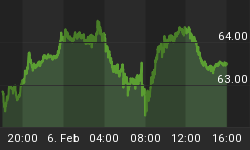'We Can't Say Gold Is Going to Protect Us from Inflation When [It has Risen from] $27 an Ounce to $1,218 an Ounce'
The Dunning-Kruger effect is the idea that low-ability people tend to suffer from illusory superiority. The phenomenon, first studied by David Dunning and Justin Kruger, says that people who know the least tend to overvalue their own competence, and tend to believe that they are experiencing some sort of upper-echelon level of thinking.
While the original study was conducted in 1999, we witnessed what appeared to be the Dunning-Kruger effect in action this past Tuesday on the floor of the Idaho House of Representatives.
And while it's only March, but we also have identified the front-runner for our "Aurophobe of the Year" award. (Aurophobia is the irrational fear of gold.)
During the March 14th floor debate on Idaho's House Bill 206, a measure that promotes sound money by removing Idaho income taxation from precious metals, Democrat Representative Mat Erpelding -- the House Minority Leader -- couldn't help himself and had to share his two cents, even after asserting that he had no opinion on the bill (but then voted against it).
"Thank you, Mr. Speaker. I don't have an opinion on this bill. However, I do have an opinion on facts. Facts are somewhat important," Representative Erpelding said with an air of superiority. "If we say that gold is going to protect us from inflation, I want to point out that in 1868, gold was $27 an ounce, and today gold is $1,218 an ounce. So, we can't say that gold is going to protect us from inflation when you have that type of a price range over the last hundred years. So, I just want to point out that facts are important."
Huh? The purchasing power of the dollar versus gold has fallen nearly 98% and gold therefore offers no protection against inflation?
Despite Minority Leader Erpelding's objection, House Bill 206 overwhelmingly passed in the House 56-13. Next, sound money supporters hope to receive a hearing and a vote in the Idaho Senate.
Watch the video here.















